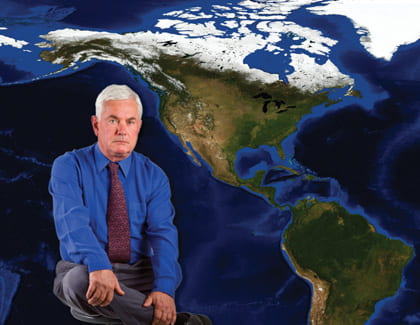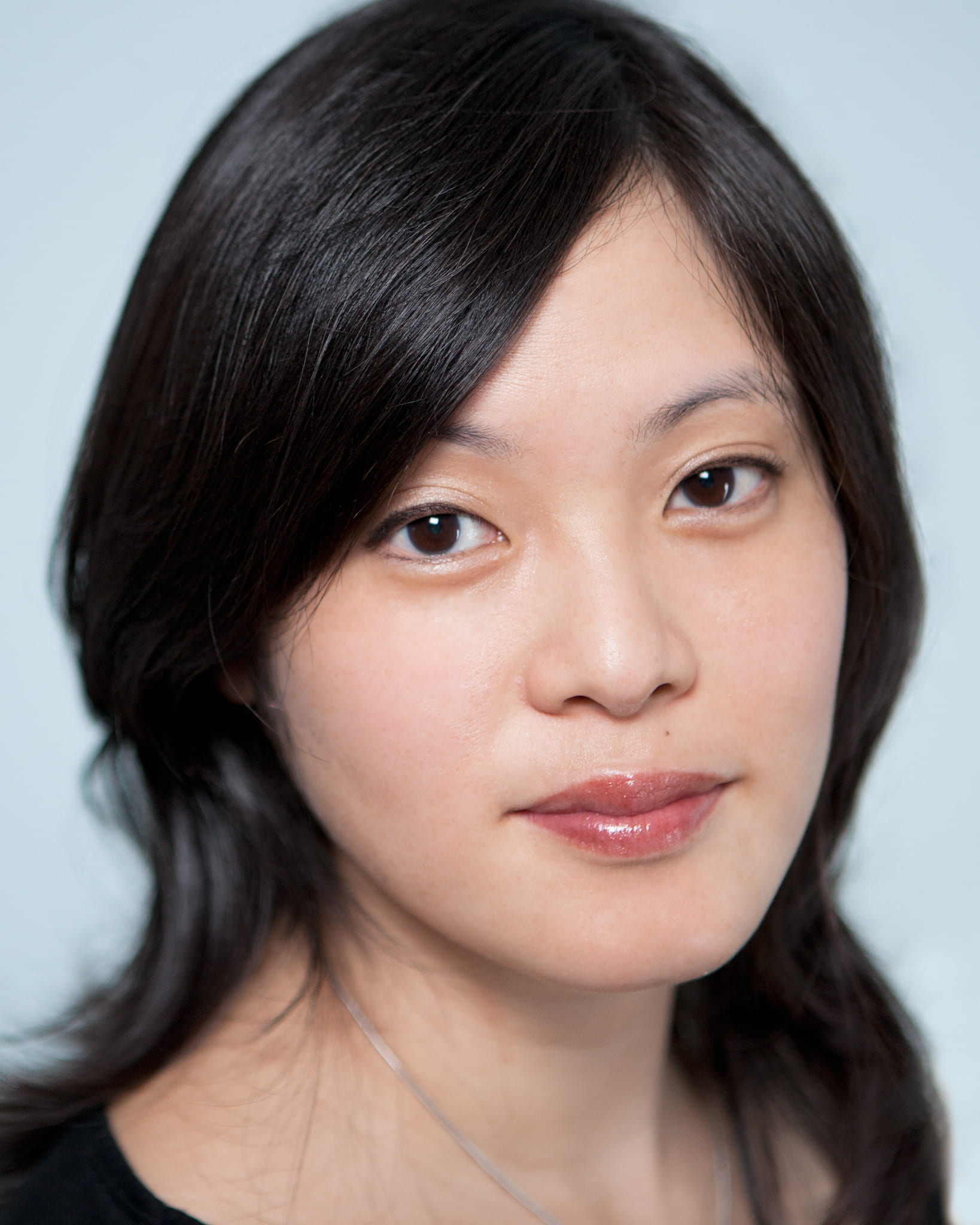Peace talks (1)
John Whiteley asks how – and if – peace can be achieved in the nuclear age

Much has changed in the 25 years since UC Irvine social ecology professor John Whiteley interviewed the late psychologist B.F. Skinner for the first in a series about world peace. Cold War fears have been eclipsed by anxiety over terrorism. Technology has been transformed – their conversation was videotaped in the University Club using the now-dated VHS format. And Whiteley himself is different; his already white hair is even whiter. Yet today, one thing remains the same: Whiteley is still on a quest for peace.
From 1983 to 1989, he taped about 200 half-hour interviews with a range of renowned experts, including Norman Cousins, Condoleezza Rice, John Kenneth Galbraith, Donald Rumsfeld, Barry Goldwater, Shirley Chisholm, Julian Bond and Rollo May. The “Quest for Peace” segments were originally broadcast on U.S. cable and public access stations.
Now, thanks to technology that didn’t exist when Whiteley began his quest, the interviews are accessible to anyone with a Web browser. In July, UCI Libraries launched a Quest for Peace Web site (www.lib.uci.edu/quest) featuring transcripts, bios and interviews. Whiteley is again devoting countless hours to the project, working with the libraries as well as the campus’s Teaching, Learning & Technology Center and Network & Academic Computing Services to digitize the entire series.
“These interviews contain enduring insights that transcend the Cold War,” he says. “Many of the issues raised address the unmet challenges of achieving peace in any age.”
Indeed, many conversations could have taken place today. For instance, much of what terrorism expert Brian Jenkins tells Whiteley in 1988, 13 years before 9/11, proves chillingly prophetic.
“[Terrorists] don’t necessarily have to go up into high-tech, more exotic weapons in order to carry out their attacks,” Jenkins says. “The one reason is they have virtually unlimited targets. Terrorists can attack anything, anywhere, anytime. Governments can’t protect everything everywhere all the time, and that asymmetry gives the terrorists an advantage.”
Whiteley was able to get high-profile people in education, psychology, religion, economics and other domains of society to participate because, he says, they knew their views would be respected, not edited into sound bites.
“They have wisdom they never get to share,” he says. “I was not prepared for the extraordinary outpouring of thought from people who didn’t want to accept the way the world was going.”
In the intervening years, as Whiteley observed wars come and go, more has changed than just his hair color. He’s more pessimistic about the possibility of peace than when he first sat down with Skinner.
“I feel less secure in the world, as most Americans probably do,” he says.
Does that mean he no longer gives peace a chance? When asked, he quotes the late Joseph Cardinal Bernardin, archbishop of Chicago, who told him peace is “possible, but not inevitable.”
“We’ll need to change all of our social structures,” Whiteley says. “We need to put the welfare of all people before the welfare of the tribe. We need to reach out to the worldwide community and take these issues seriously.”
Until that happens, Whiteley’s work remains unfinished, his quest unfulfilled.
— Kathryn Bold
Ernest L. Boyer, educator
“Where’s the Manhattan Project for Peace? Where are the centers where our best minds are brought together to inquire around the infinitely more difficult, but in the end ultimately more important question of the uses of knowledge toward human advancement? We seem frozen within the traditions of nationalism, within the traditions of self-centeredness, and even, if I might say, within the traditions of confrontation.”
John Kenneth Galbraith, economist
“A nuclear war does not defend a country and it does not defend a system. I’ve put it the same way many times: Not even the most accomplished ideologue will be able to tell the difference between the ashes of capitalism and the ashes of communism.”
Dr. Karl Menninger, psychiatrist
Whiteley: “How would you want us all to change as a society in order to achieve a more peaceful world?”
Menninger: “Well, I’d put a taboo on vengeance, and revenge, retaliation, even if it’s called patriotism, or called valor, or called standing up for yourself. All of those words – I’d try to get rid of vengeance.”
B.F. Skinner, American psychologist
“At the moment, religion hasn’t very much to show for itself as an instrument of peace. Most of the conflict in the world today is of religious origin, and that’s taking religion very broadly.”
Norman Cousins, former editor, The Saturday Review
“We’re living in a very primitive period in human history where we haven’t yet emerged from the psychology of the tribe. We haven’t yet learned how to protect the human nest; but as a species, I believe we can evolve. We can begin to think in terms of creating something beyond the nation, without eliminating the nation.”
Julian Bond, civil rights leader
“People can make a difference, but first people have to believe they can make a difference, and have to get over the notion that they can leave it to someone else, leave it to a leadership figure, leave it to a member of Congress.”
General Curtis LeMay, former Air Force chief of staff
“I see nothing bad about an arms race. To me, it is a cheaper way of winning the war, and we’ll win it that way. This is a better way, a far better way in my mind of defeating [the communists] than to have an all-out war.”
Condoleezza Rice, U.S. secretary of state
“I think that the notion of the Soviet Union as bent on world domination is a bit simplistic, though certainly I don’t think that one can dismiss the idea that any great power – and particularly one that has this particular history and ideology – will want to see the world in its own image. I think it is something in the nature of great powers to want that.”
